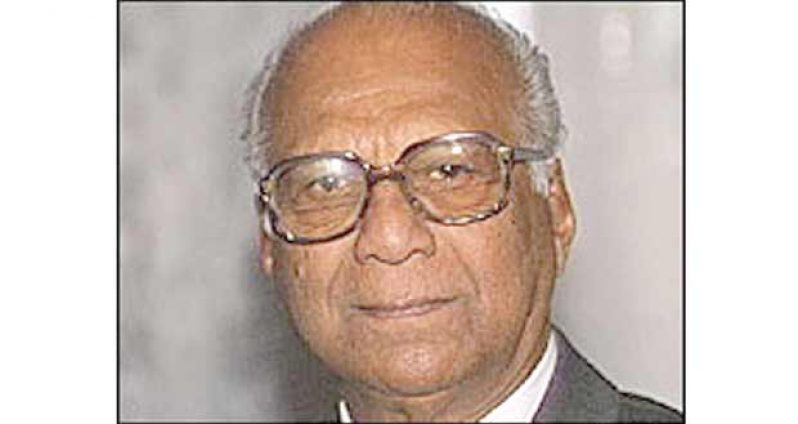The month of March is significant in the political calandar of this country but more so for the People’s Progressive Party. It is in the month of March that Cheddi Jagan and his wife Janet Jagan passed away, two political icons who, together, influenced and shaped the nature and course of our politics for over six decades. Between the two of them, they gave to the Guyanese people over a century of dedicated and meritorious service, a remarkable feat by any standard. Incidentally, it was also in the month of March that Dr. Cheddi Jagan was born which gave added significance to the month
I propose, especially for the sake of our younger readers, to reproduce excerpts of Dr. Jagan’s writings, especially during his early entry into the politics of this country. These writings bring out the depth and profound nature of his ideas and thoughts and the passion and dedication with which he carried out his political work. He undertook his political tasks with a sense of mission, to change not only the condition of life for the poor and oppressed in Guyana but for the downtrodden in the world at large.
RACIALISM
Who can deny that if slums and ranges have been cleared and workers today live in decent housing settlements in sugar estates, in New Amsterdam and Greater Georgetown it is due principally to the PPP.
Who can deny that the racialism of 1947-50 was equally as strong as it is today. Did I not destroy racialism in 1953 which was fostered by the reactionary political influences of the East Indian Association and the League of Coloured people.
Let those who attack me today remember my stand yesterday. I have not changed. What I believe in 1945/46 still hold dear today.
Today my beliefs are being questioned and blamed. Were the beliefs of Critchlow, Woolford, Eleazer, Dargan, Cannon, Thorne to name a few, not questioned and blamed also?
With these leaders of the past I share an intense nationalism and patriotism and a deep sense of duty to uproot the Guianese from the status as a people with a low economic and social level.
Incidentally, in 1932, one of our dailies wrote of Mr. Critchlow on his return from Russia:
“We are very interested in the account Mr. Critchlow had brought back to the West Indies of his activities in the Soviet Union. We believe all he said of his experiences and wish to assure him that if and when it suits him, we will accommodate him in a cell.”
But I also subscribe to, and believe in, the theory of Marxism. Marxism is a body of scientific principles formulated by Marx and Engels. It was Karl Marx who discovered the laws of social change, fathomed the mysteries of the capitalist economic system and showed how to unlock the vast pent -up energies that can provide abundance for all.
Just as Darwin discovered how evolution works in nature, so Marx discovered how it works in history. In the words of the famous biologist JSB Haldane “Marxism is simply scientific method applied to human history.”
It was Marx who first laid bare the mainspring of capitalist production surplus, surplus value. He not only, like the ‘utopian’ Socialists and Communists Robert Owen, Saint Simon and Fourier, talked about exploitation and the vision of a new ideal society. He showed how the working class was exploited, how surplus value- profits, rent and interest-was extracted by the capitalists, landlords and bankers, and how the new socialist society was to be organised –public ownership of the means of production.
My opponents have led the Guianese people to feel that Marxism means violence, slave camps, denial of civil and human rights and the seizure of property. This is not what it means to me. They argue by simple historical analogy –what happened in the USSR and Cuba would happen here; methods applied there would happen here.
Our doctrine is not a dogma, but a guide to action, said Marx and Engels, who always scorned the mere acquisition and repetition of “formulae’. There are various roads to Socialism. What road is followed will depend upon the peculiar feature of each country, its economics, politics, culture and tradition, national composition, religious background and so on.
Today, as a nationalist and anti-colonialist I struggle for the political independence of my country; as an anti-imperialist for ending of foreign domination and subjection of my country; as a democratic for the rights and liberties which yesterday were trampled underfoot and today, in many instances are being denied by vested capitalists, for the creation of a new society.
I am interested in creating a free Guyana and a new society-a society free from exploitation, a society of equality and brotherhood where truly human relations will prevail.
By Hydar Ally












